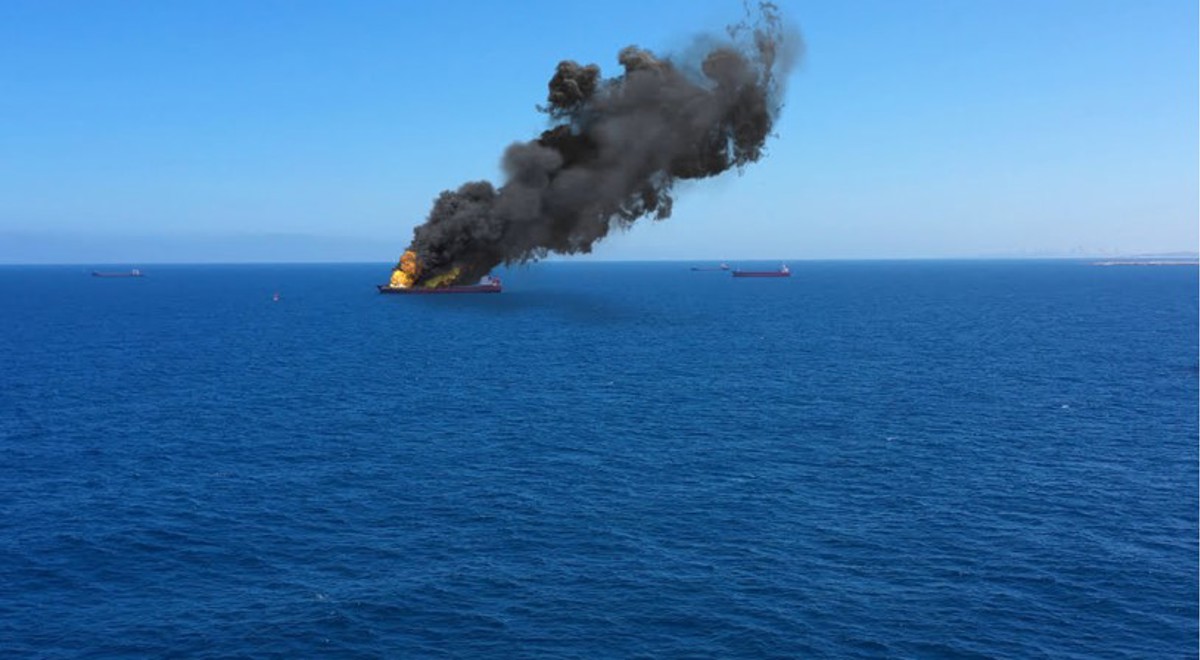Fire at sea – some timely reminders (Safety4Sea)
- Safety Flash
- Published on 20 June 2022
- Generated on 25 February 2026
- IMCA SF 15/22
- 2 minute read
Jump to:
The online safety magazine Safety4sea has published an article entitled "Twckling fire onboard: Where we stand."
The online safety magazine https://safety4sea.com, which amongst other organisations, re-publishes IMCA safety flashes, has published an article entitled “Tackling fire onboard: Where we stand”. It is based on findings from the Safety and Shipping Review 2021 published by Allianz. Some excerpts are published here.

Four common causes of fire onboard
- Oil leakage: Leakage from high-pressure fuel oil pipes is the most common risk for fire onboard as oil from these pipes can accidentally fall in high temperature areas due to the machinery involved.
- Do: Insulate any hot surface with a temperature above 220 °C to prevent any oil encountering a hot surface.
- Don’t: Invest in poor quality materials regarding pipes and/or associated fittings.
- Electrical failures: Leaving personal electronic items unattended always entails risks, as there have been cases of faulty devices, overloading of extension cables and plugs, etc.
- Do: Remove defective equipment from use/service, when damage is identified.
- Don’t: Use multi-gang extension leads and high current devices onboard.
- Flammable cargo: It is not uncommon that fires erupt during loading and unloading of specific cargoes, like coal, as well as from mis-declared hazardous cargo in containers, such as self-igniting charcoal, chemicals and batteries.
- Do: Check that all packages are properly marked and labelled; consider using a Container Packing Checklist.
- Don’t: Pack damaged packages or stow heavy goods on top of light goods.
- Hot work: Many cargoes, including a wide range of bulk cargoes and general cargoes can be ignited by hot work.
- Do: Carefully prepare and isolate the work area before work starts.
- Don’t: Neglect a written plan for the operation, agreed by everyone involved.
Related Safety Flashes
-
IMCA SF 01/22
10 January 2022
-
-
IMCA SF 24/21
31 August 2021
-
-
IMCA SF 19/21
12 July 2021
-
-
IMCA SF 32/20
26 November 2020
-
IMCA SF 32/20
26 November 2020
-
IMCA SF 28/21
15 October 2021
-
-
IMCA SF 10/14
30 June 2014
-
IMCA SF 10/14
30 June 2014
IMCA Safety Flashes summarise key safety matters and incidents, allowing lessons to be more easily learnt for the benefit of the entire offshore industry.
The effectiveness of the IMCA Safety Flash system depends on the industry sharing information and so avoiding repeat incidents. Incidents are classified according to IOGP's Life Saving Rules.
All information is anonymised or sanitised, as appropriate, and warnings for graphic content included where possible.
IMCA makes every effort to ensure both the accuracy and reliability of the information shared, but is not be liable for any guidance and/or recommendation and/or statement herein contained.
The information contained in this document does not fulfil or replace any individual's or Member's legal, regulatory or other duties or obligations in respect of their operations. Individuals and Members remain solely responsible for the safe, lawful and proper conduct of their operations.
Share your safety incidents with IMCA online. Sign-up to receive Safety Flashes straight to your email.